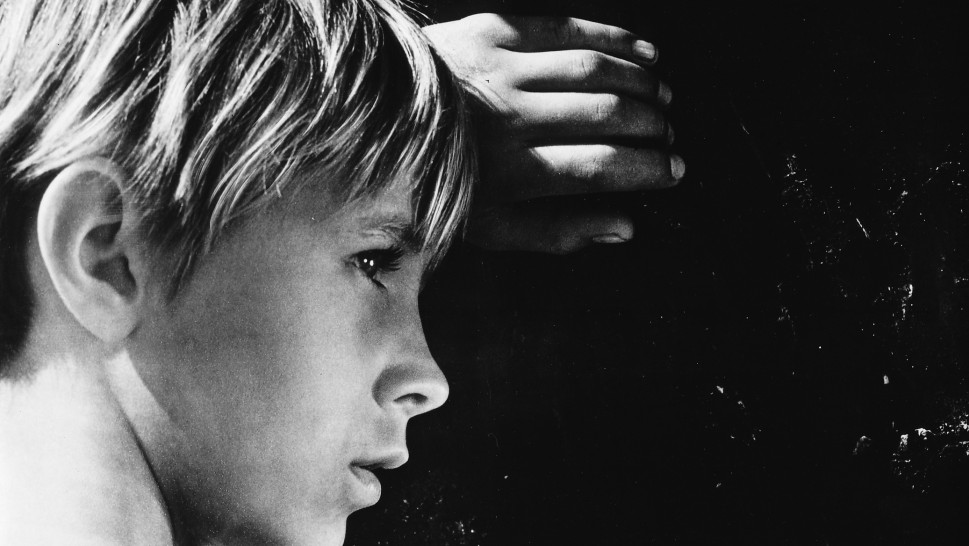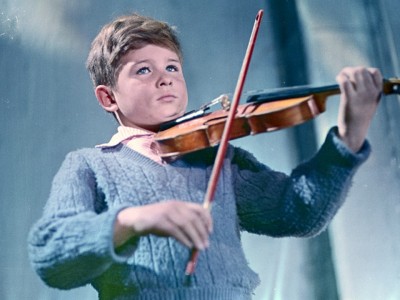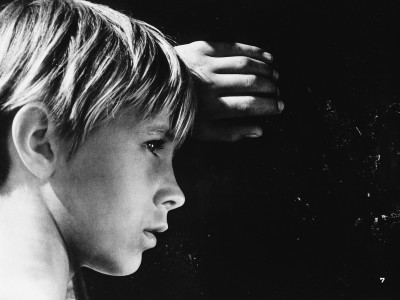
The Steamroller and the Violin
Ivan’s Childhood
Tarkovsky’s diploma film was the first of three co-written with Andrei Mikhalkov-Konchalovsky and scored by Ovchinnikov. It chronicles a day in the life of a sensitive seven-year-old violinist (Fomchenko) and the unique bond that develops between the boy and an adult steamroller driver (Zamansky). The music cues are surprisingly varied given the film’s length, and the radiance of a city seen through a child’s eyes finds a musical analogue in parts of Ovchinnikov’s score. Source music plays an important dramatic role here, most directly in the violin double-stop piece the boy performs several times throughout; an organ rendition of this theme bookends the film.
When Tarkovsky was invited by Mosfilm to direct this story of a twelve-year-old scout on the front lines (Burlyaev) in World War II, he agreed to do so only with the addition of four interludes in which Ivan dreams of "the life he has been robbed of — a normal childhood." (Tarkovsky) These poetic and experimental sequences recall the work of Alexander Dovzhenko, and Ovchinnikov's light, impressionistic scoring emphasizes brighter timbres of harp, winds, and strings. By contrast, the somber reality of wartime brings forth a darker orchestral palette during the suspenseful night river crossings, and aleatoric, phantasmagoric musical sequences underscore its victims. Loosely based on the short story “Ivan” by Vladimir Bogomolov, Tarkovsky’s first feature-length film received the Golden Lion at the 1962 Venice Film Festival.


















